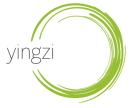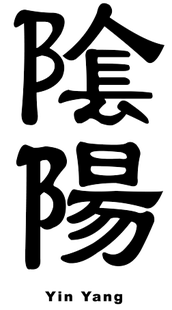Yin and Yang
Yin and Yang is one of the most fundamental concepts in Traditional Chinese Medicine, as it is the foundation of diagnosis and treatment.
Clinical symptoms can be interpreted via Yin-Yang theory. When Yin and Yang are in dynamic balance and relating harmoniously, there are no symptoms to observe. When Yin and Yang are out of balance, they become separated. For example, when Yin does not cool and nourish Yang so Yang rises (headaches, sore eyes, sore throats, nosebleeds, irritability, manic behaviour). When Yang does not warm and activate Yin (cold limbs, hypo-activity, poor circulation of blood, low energy).
Clinical symptoms can be interpreted via Yin-Yang theory. When Yin and Yang are in dynamic balance and relating harmoniously, there are no symptoms to observe. When Yin and Yang are out of balance, they become separated. For example, when Yin does not cool and nourish Yang so Yang rises (headaches, sore eyes, sore throats, nosebleeds, irritability, manic behaviour). When Yang does not warm and activate Yin (cold limbs, hypo-activity, poor circulation of blood, low energy).
The Five Elements
|
The Five Elements theory posits wood, fire, earth, metal, and water as the basic elements of the material world. These elements are in constant movement and change. Moreover, the complex connections between material objects are explained through the relationship of interdependence and mutual restraint that governs the five elements. In traditional Chinese medicine Five Elements theory is used to interpret the relationship between the physiology and pathology of the human body and the natural environment.
|
Qi
Traditional Chinese medicine believes that Qi is the most fundamental substance in the construction of the human body and in the maintenance of its life activities. It has two sources, one is the innate vital substance one inherits from one's parents before birth. The other is the food essence and fresh air one receives from air, water and food in the natural world. The materials obtained in the two ways above have to be processed and transformed by the viscera and bowels before becoming the Qi of the human body. Qi flows through meridians, or energy pathways. Fourteen major meridians run through the body, and it is over this network that Qi travels through the body and that the body's various organs send messages to one another.
Contact | Yingzi Tel. Vevey 021 921 63 73 - Monthey 024 472 11 66

